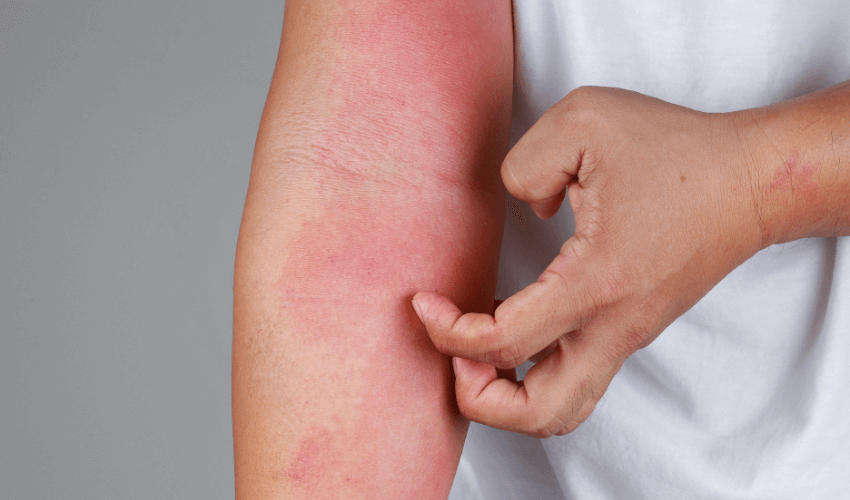Sometimes that your body makes sense and sometimes it doesn’t. It’s not an issue with you necessarily, it’s just the reality that our bodies hare complex machines that require a lot of detail and data to work properly. One of the commonly misunderstood issues is that it’s thought that sensitivity to food — through an intolerance — is thought to be linked through eczema. While one does not necessarily guarantee the other, a food intolerance test could help if you are dealing with eczema.
How can a food intolerance test help with eczema?
To understand the potential support of a food intolerance test, we’ve got to take a look at how eczema and food intolerances are thought to be linked. The connection comes from the level of IgG in the blood. An antibody in our system, this level is increased when something triggers a reaction such as a food you’re intolerant to. It’s one of the indicators that you have a food intolerance and it is used in lab tasting on a standard test. However, those with eczema (and dealing with a flare-up) will also have high levels of IgG in the blood.
The thought is that those who have flare-ups with eczema are dealing with high levels of IgG and something is increasing those levels to the point where your skin could inflame, and trigger an excess breakout.
Since a food intolerance test is intended to point out those causes of heightening IgG levels, you’ll be able to determine where the problem is, what to avoid, and even how to avoid it. When the rest results come back, you’ll have clear indicators on the severity of the food intolerances and then a guide on how to eliminate them from your diet.
Getting a food intolerance test will not cure eczema or guarantee that you never have flare ups, but you will get results that will help you to know where potential triggers are so that you can avoid them and help keep your breakouts minimal or even barely noticeable. This is especially helpful for those who are prone to bad rashes that last for a long time.
What else should I know about the food intolerance test?
Now that the connection between IgG levels, the test, and eczema is clear, let’s take a moment to get familiar with the test itself. This isn’t some painful procedure with a clinic and people in masks. This is an at-home test that ism ailed to your doorstep with instructions, sampled by you, and then sent back to the lab. You’ll be able to do it on your own time, pain-free, and then get the results emailed to you so that you won’t even be inconvenienced by the test or its results. No labs or painful procedures are needed to get this potentially helpful information.
Even if the connection wasn’t clear at the beginning, it’s nice to know that those who are suffering from eczema can get support with reducing flares by getting conclusive test results from a food intolerance test. Now it’s up to you to put it into practice!


